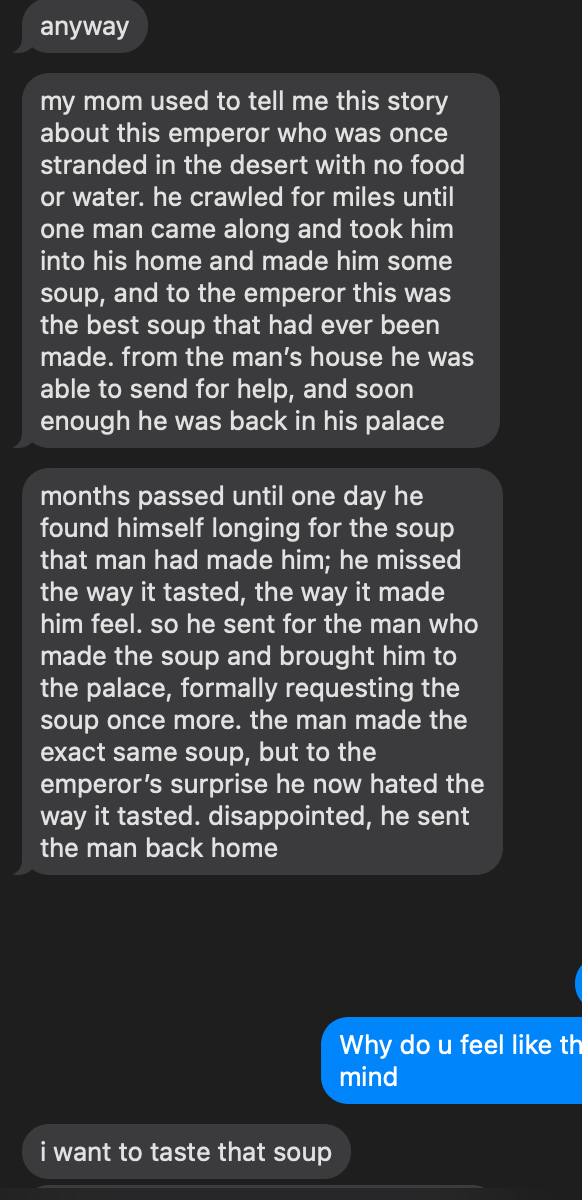Story: George, my great great grandfather, had a neighbor was jealous of him. The neighbor was very poor, and my great great grandfather would give him bread and water. He was so jealous that one day he just shot him – right through the forehead. According to my grandfather- but I should really ask my Yaiya who knows the story better- after he shot George, he felt so much remorse for killing a kind man – he begged my great, great grandmother for her forgiveness, and she did forgive him- and he became so depressed that he never left his home and spent the rest of his life looking out across the road at George’s house.
Format: The informant told these to me in person, and I recorded them to better transcribe them later.
Context: The informant was told these stories by their father, who was handed down these stories from his father, who was told some of these stories by his father. They are stories about the informant’s great great grandfather, George, and the village he is from. The informant feels as if this story is bittersweet, and did not have much else to say about it.
Analysis: I believe that this legend shows the immense capacity for kindness that the informant’s ancestors had and show what someone is capable of when they truly care about others, but in the same story you hear about the worst that humanity can do, and where their minds are capable of going. It feels like a cautionary tale.

